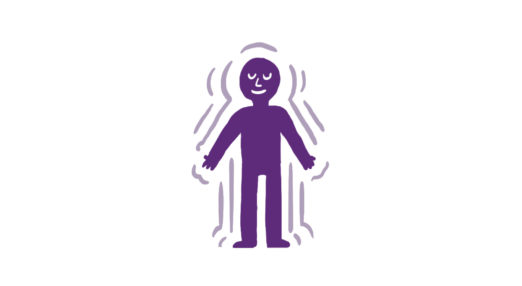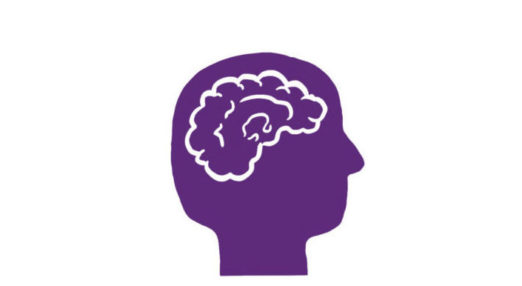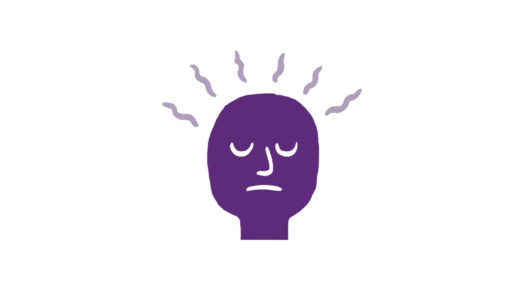Conversation about Self Harm
Tanaka talks to John about types of self harm and how some men use it as a way of coping with sexual abuse.
So tell us a little bit about yourself.
My name is Tanaka, I’m a writer and I work with the media as well, and I’m a survivor of sexual violence.
So today we’re going to talk about self-harm and what it means. What to look out for and what you can do about it. So tell us a little bit about self-harm.
How does your experience in life lead you to it. If you’ve been hurt already, where does the desire to hurt yourself some more come from?
So I think the tricky thing is that self-harm can look the same on two different people, but it can mean really different things to them – or it can be really different things to the same person.
So for me, part of why I was self-harming was I was trying to take control of my body, right? Like I felt like that control had been taken away from me and I needed to assert the control.
And then also on the flip side, sometimes it was really about punishing myself. It was about feeling, you know, a lot of shame, feeling like I didn’t deserve to be happy, or to be healthy and taking that out on myself. And it can be really hard to know where the one thing begins and the other thing ends.
So what is self-harm?
All right, there’s so many different kinds. I think the stuff people know about is, you know, when someone’s cutting themselves or when… sometimes people burn themselves as well. That I think is often quite obvious. People look at it and they say, ‘Oh, that self-harm’. But self harm can also look like under feeding yourself. For a lot of men it’s over exercising. It’s exercising to the point where actually you’re damaging your body.
That’s self harm?
Yeah, absolutely, and it’s incredibly common. It’s one of the most common forms of self-harm for men. And I think often, particularly for men who’ve been sexually assaulted, there can be this real drive to assert your masculinity and prove you can do this, or that, or you know, the other thing. To prove that actually, you know, you’re a ‘real man’. You can get to a point where actually you’re doing way too much exercise and pushing beyond what is healthy for your body.
Another thing that you see quite a lot is various kinds of self-neglect.So, you know, people not taking care of their hygiene and in the way that they might usually. Sometimes people don’t feed themselves properly.
Sometimes people will wear clothing that’s really uncomfortable and they won’t do anything about it. Letting yourself be too hot or too cold. Or just being uncomfortable and not doing anything about it because you feel like you don’t deserve to be comfortable.
We see things like skin picking as well that can be part of how people self harm. That can be a self harming behaviour.
So one of the big things that we see again with men is a kind of self poisoning so often that’s with things like, over the counter stuff like paracetamol and ibuprofen and putting things in your body so that you can get stomach aches. And a lot of it is stuff which to the outside world might look like you’re making mistakes or might not look that obvious in the same way that cutting and those kinds of things are.
So what about alcohol, self-medicating?
Yes
How does that work?
So, yeah, alcohol can absolutely be a form of self-harm, and I think it all goes back to shame.
It’s all related to the thing that sexual violence tries to tell you, which is actually you don’t count. You’re not enough. You’re not good enough. And you don’t deserve dignity and agency and all of the things that we need as human beings to to be happy.
And I think the real trap is once you start believing that, then you can stop believing that in some way that you deserve to be heard, and then you can start hurting yourself. And that’s really where people need some support to come in.
So when you started to self-harm, were you aware that you were doing all that?
I really wasn’t aware of self-harm at all. I really, you know, I was just kind of doing way too much exercise. That was the big thing for me. There was also some of the cutting, and those kinds of things as well.
It’s funny because people could see, you know, and that was physical. When there are physical scars on your body, people see that and they go, “okay, that’s a problem”. But if someone is spending, you know, six days a week, two hours a day at the gym, people think that’s somehow less of a problem. But it can be completely part of the same pattern.
So why would you want to hurt yourself? That’s what I don’t understand. Surely…My instinct, I imagine, would be rage… wanting to hurt other people. But is that not characteristic of being abused or being assaulted? That urge to strike out and get revenge against an external person?
So I guess the interesting thing is that for a lot of people, it’s your own rage that can be really scary. It can be really scary to see yourself as someone who’s angry at the world, as someone who has, you know, lots of these feelings that are directed outwards. And I think a lot of people, myself included, like… I definitely just poured it all back in.
If you’re hurting yourself, you’re in control of where that anger is going, right? I think for a lot of people being around anger that’s directed out into the world after you’ve been abused or attacked is still quite scary.
So for some people, that can be, I guess, a way of of turning that anger inside and expressing it in a way which doesn’t damage your life in the same ways and those same obvious ways, even if you can be doing some quite serious harm to yourself,
As you mate, as your ally, what do I look out for?
I think it can be really hard to tell from the outside. So what I would say is if I was doing something to myself that I wouldn’t want to see someone I love doing to themselves, then it’s time to get some help. That’s that’s really when it’s time to reach out, even if it it can sometimes feel like you’re you’re in control of the situation and that feels, you know, it feels fine and it’s, you know, ticking along quite nicely.
I think it’s really important that we are sometimes so hard on ourselves. We’re harder than we would be on anyone else in our lives, right?
Yeah.
So I think you treat yourself as well as you would treat your best mate. I think that’s a really good idea.
But then does that mean that self harm is a cry for help? or is it attention seeking or is it pain relief? What is it?
I think the short answer is yes, it can be.. It can be all of those things or none of them. It really depends. And that’s why it’s so important to listen to the person who’s engaging in that behaviour. Because just because you can see that someone is hurting themselves, it doesn’t mean that you know why they are.
Are they using it to regulate their feelings? Are they using it to punish themselves? I think the really important thing that we need to do, rather than saying “Oh my goodness, this is quite scary behaviour”, and freaking out a little bit, is getting curious about what need is being met by that self harm.
Why is that person doing it, asking that really important question “Why?” Because what that person needs is probably something that really needs tending to right?
The need isn’t wrong. The behaviour is not the right way to meet that need, maybe. But we need to ask “why?” we need to get at that underlying reason.
So how did you work out how to meet those needs?
I think firstly, I had to admit what it was, which was for me, that was about control over my body and it was about not feeling in control. And so I had to then go and do some work on that with some mental health professionals and kind of work out how I could find ways of reminding myself that I was in control of my body.
But it will be different for everyone. And it’s just, it’s always about finding new ways of meeting that need, which is real and is important. It’s probably telling you something really important, right?
I think if self-harm is an issue, the important thing to remember is that there are techniques that you can do where you’re still getting that kind of physical sensation that you need, whether that’s to ground you or, you know, break that dissociation. But it doesn’t have to be that physical behaviour that’s causing injury or that’s causing damage to your body. There’s other stuff you can do.
And you know, one of the great things about seeking support is that you can have someone on your team who’s working with you to find those new behaviours. Maybe instead of cutting you and your therapist are going to work towards some kind of other thing. Rubbing your body or there’s all sorts of stuff. And it’s just important to know that just because you need some kind of physical sensation to help you in that moment, it doesn’t have to be that one that you’ve been using.
Can you sort yourself out? Do you need to get help? Do you need to have someone else to guide you through it?
I think everyone needs help, but it doesn’t look the same for everyone. I think that’s the really important thing. And it doesn’t look the same at different stages in your life as well.Like, there have been times in my life where absolutely, you know, I didn’t need a therapist. What I needed was my friends and my family and my partner and people I loved.
And then there have been times in my life where actually I really do need someone who knows about this stuff. Someone, you know, like one of the services that 1in6.uk can point you towards, or I needed that specialist advice and support.
So it’s different. I think, you know, you need to explore all your options. I don’t think anyone can do 100% on their own.I think it takes a lot of people to get a survivor surviving, if that’s the phrase we want to use.
Tanaka Mhishi is a poet, playwright and performer and is a survivor of sexual violence.
He works with a number of organisations on issues surrounding consent and sexual violence, with a particular interest in the way we can bring creativity to these difficult subjects.
He is on the Advisory Group which leads the delivery of 1in6.uk and has contributed to content about sleep, self harm and finding a route towards healing.
John Ryan is a stand up comedian, writer and presenter and ally to male survivors.
He works for a range of health organisations using comedy to raise awareness and share information.
He is passionate about helping people to become good allies and supporters to men and boys who have experienced sexual abuse or assault.
-

Body Scan Exercise
Learn a technique you can use to help you to sleep and manage uncomfortable sensations.
See more
-

How Your Brain Works
Learn how human brains process traumatic events at the time and why we are affected afterwards
See more
-

Your Response to Trauma
Understand how your thoughts, feelings and behaviour today could be linked to what happened you in the past, and what you can do about it.
See more


